Enjoy an eclectic array of science content for all ages, from distance learning resources to in-depth livestreams.
2020 World Oceans Day Panel: A Breakfast Club Special
Monday, June 29
10 am PT
Join 9 incredible scientists—all working on the frontlines of ocean exploration, conservation, and science-communication—for a 3-panel, week-long, wide-ranging discussion about the issues, research, and discoveries impacting marine science today. From coral reefs to sharks to the mysterious deep, celebrate ~70% of our planet by joining us live for a three-part series of 15-minute “mini-talks” from experts, followed by all the questions our viewing audiences can ask.
As a very special mini-series within our Breakfast Club series, all 2020 Oceans Week panels will stream to YouTube and Facebook.
Monday, June 29, 10 am
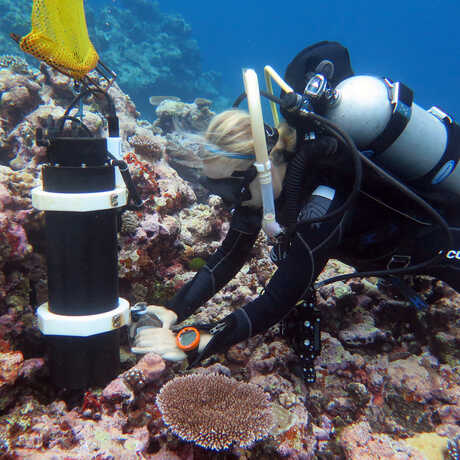
Dr. Rebecca Albright
Assistant Curator of Invertebrate Zoology, California Academy of Sciences
Dr. Rebecca Albright is a coral reef biologist with expertise in coral reef biology, ecology, and biogeochemistry. Her research focuses on the ability of coral reefs to cope with changing environmental conditions such as ocean acidification and warming. She’s worked in academic, government, and nonprofit settings and has studied coral reefs around the world, ranging from the Florida Keys to the Great Barrier Reef. She works across scales (ranging from single cell interactions to reef-scale processes) and disciplines (biology, ecology, biogeochemistry) to foster a systems-level understanding of how coral reef ecosystems will fare in today's changing world. In addition to her commitment to research, Rebecca’s passion for community engagement has been fostered by years of working with nonprofits and citizen science organizations that focus on educating communities about coral reef conservation and management.
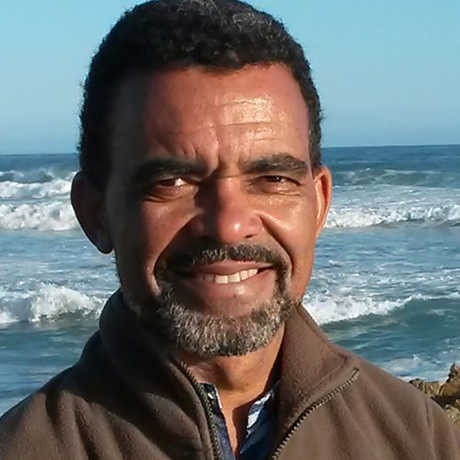
Dr. David Obura
Founding Director, CORDIO East Africa
David Obura is a Founding Director of CORDIO East Africa, a knowledge organization supporting sustainability of coral reef and marine systems in the Western Indian Ocean. CORDIO takes research to management and policy, builds capacity, and works with stakeholders, managers and policy makers. David’s primary research is on coral reef resilience, in particular to climate change, and the biogeography of the Indian Ocean.
At the boundary between science and action, David works to integrate conservation and development through inclusive blue economy principles and links provided by global sustainability goals and targets. He works from the local scale, through fostering innovative action to promote sustainability, through regional scale alignment and integration such as in the Northern Mozambique Channel, to global scales of bringing knowledge and local-regional practice into decision-making circles. 2020 will be a critical year for ocean, biodiversity and climate targets in global conventions, and David is engaged in multiple processes (see expert groups) to bring coral reef science and learning into these global fora.
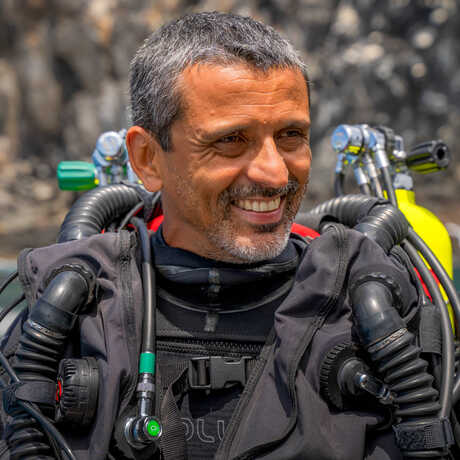
Dr. Luiz Rocha
Associate Curator and Follett Chair of Ichthyology, California Academy of Sciences
Luiz Rocha is the Curator of Ichthyology at the California Academy of Sciences. His major research interests include evolution, conservation, taxonomy, and community ecology of coral reef fishes. He has spent more than 5,000 hours studying fishes underwater, and published more than 140 peer-reviewed articles and one book. In addition, his work has been featured in many popular media outlets including CNN, the New York Times, Scientific American, National Geographic, Science Channel, etc, and supported conservation efforts across the globe. Currently his main area of work involves the exploration of little-known deep coral reefs (between 100 and 500 feet depth) throughout the tropics.
Wednesday, July 1, 10 am
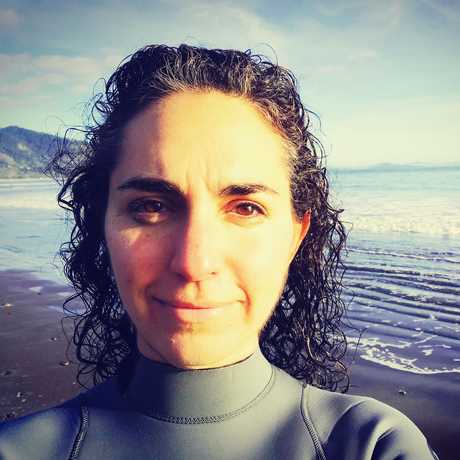
Natasha Benjamin
Policy and Outreach Director, Marine Research and Exploration (MARE)
Natasha has almost 20 years experience working in marine science and policy and a strong dedication for ocean conservation. She spends much of her time playing and working in the ocean as a diver, surfer and marine scientist. As Policy & Outreach Director at Marine Applied Research & Exploration (MARE), she works with deep sea robotic technology to collect data to inform ocean and fisheries policy. MARE is a nonprofit organization based in Richmond, California, whose mission is to explore and document the world’s oceans to support their conservation and stewardship. Natasha has a B.S. in Marine Biology from Boston University and an M.S. in Marine Policy from University of Miami’s Rosenstiel School of Marine & Atmospheric Science (RSMAS).
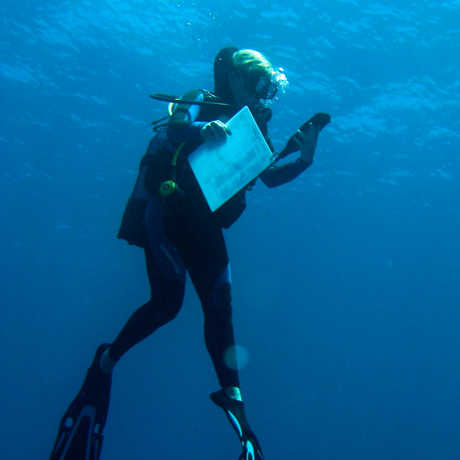
Dr. Emily Darling
Conservation Scientist, Wildlife Conservation Society Marine Program
Dr. Emily Darling investigates how tropical coral reefs are changing in the face of our climate crisis. She’s passionate about collaborative big data and field-ready technology to reveal new solutions for coral reef conservation and how to manage the world's functioning coral reefs. Based in Toronto, Canada, she’s a conservation scientist at the Wildlife Conservation Society and collaborates closely with partners across the Coral Triangle, Melanesia, the Western Indian Ocean, and the Caribbean.
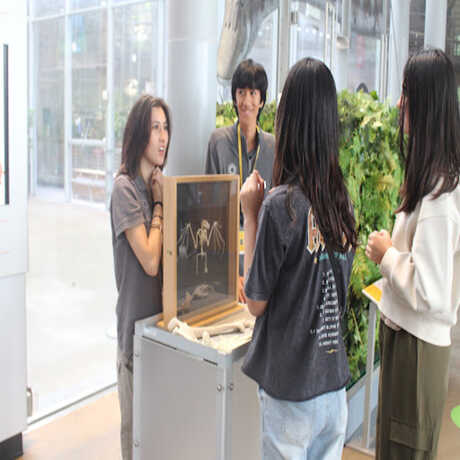
Dr. Kakani Katija
Principal Engineer, Monterey Bay Aquarium Research Institute
Dr. Kakani Katija is a Principal Engineer at the Monterey Bay Aquarium Research Institute in Moss Landing, California and leads the Bioinspiration Lab. She is dedicated to developing underwater technologies to better observe biological and physical processes where they happen in the ocean. Her research and engineering development efforts have contributed to our understanding of nutrient and plastics cycling in the oceans, biologically induced mixing of the oceans, the ecology of gelatinous and soft-bodied invertebrates in deep-sea environments, and bioinspired design. Now a National Geographic Explorer, she earned a BSc in Aeronautics and Astronautics at University of Washington, an MSc in Aeronautics, and a PhD in Bioengineering at the California Institute of Technology.
Friday, July 3, 10 am
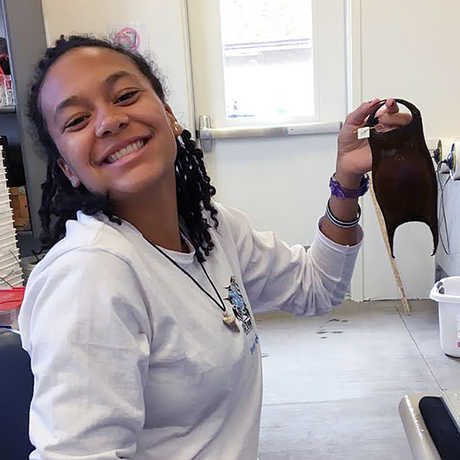
Jaida Elcock
Science communicator & incoming grad student at the University of Washington
Jaida Elcock (aka @soFISHtication on Twitter) may be best known for her lightning-fast shark science on Twitter, TikTok, and more, but—despite the focus on elasmobranchs—she cannot be stopped from sci-comming facts about all kinds of animals. She currently works as a lab tech in Dr. Stacy Farina's lab at Howard University, and will be joining Dr. Camrin Braun's lab at the University of Washington in fall as a graduate student. Her research interests include elasmobranch ecology and conservation, and she's particularly interested in the movement ecology of migratory elasmobranchs, as this information is still unknown for many species.
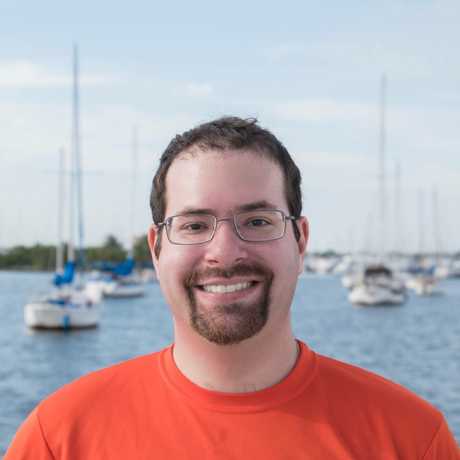
Dr. David Shiffman
Postdoctoral Researcher at Arizona State University
Dr. David Shiffman is a marine conservation biologist who studies the management of threatened shark species. He is a Postdoctoral Researcher at Arizona State University's New College of Interdisciplinary Arts and Sciences, and runs a Washington, DC-based scientific and environmental consulting firm. David has bylines in the Washington Post, Scientific American, and a monthly column in SCUBA Diving Magazine. He is one of the most followed scientists in the world on social media, and invites you to follow him on Twitter, Facebook, and Instagram @WhySharksMatter, where he's always happy to answer questions.
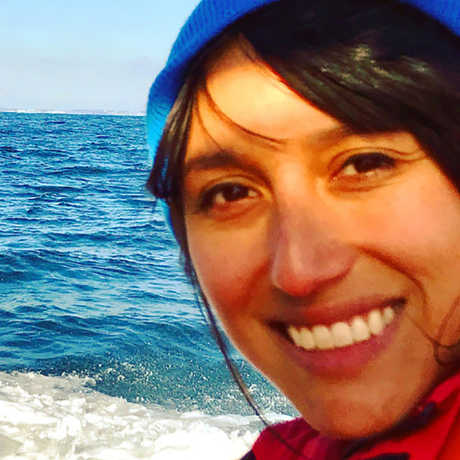
Vicky Vásquez
Graduate Student at the Pacific Shark Research Center, Moss Landing Marine Laboratories
Vicky's innate love for sharks and animal behavior has expanded into a full appreciation for ocean ecosystems and conservation issues. As a student of the Pacific Shark Research Center at Moss Landing Marine Laboratories, she works to gain a more in-depth understanding of ocean ecology and shark biology (her Master's thesis work focuses on the behavioral ecology of sharks in San Francisco Bay). As the founding Deputy Director of the Ocean Research Foundation, she additionally works to spread the knowledge through public outreach and to encourage conservation practices that will help to maintain healthy ocean ecosystems.
Enjoy an eclectic array of science content for all ages, from distance learning resources to in-depth livestreams.